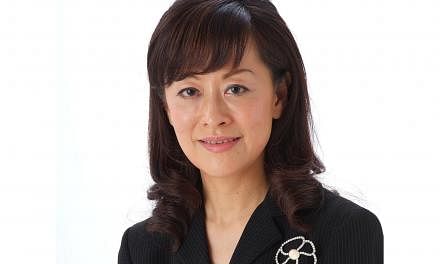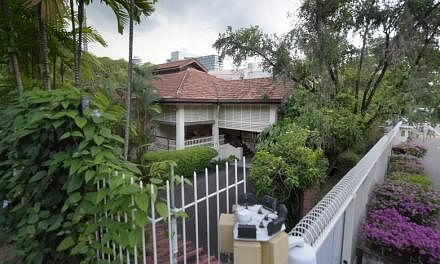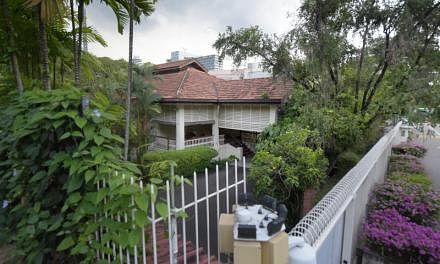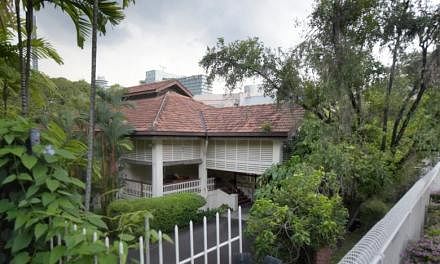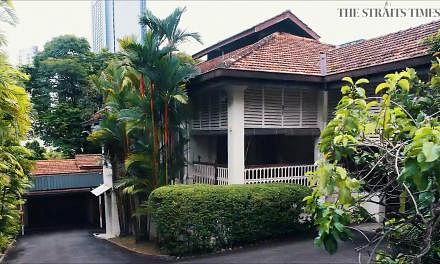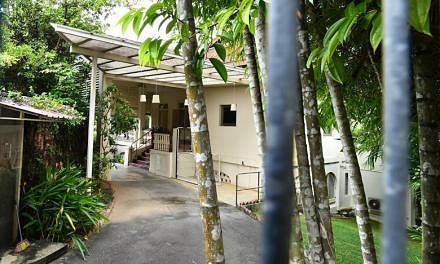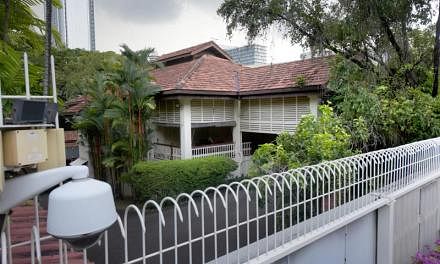SINGAPORE - The events that unfolded in the basement dining room of 38, Oxley Road during the early days of Singapore's history hold a special significance for the country, and not just the ruling People's Action Party.
The need to preserve this room was put to Mr Lee Kuan Yew by Cabinet ministers in 2011. Mr Lee then mulled over the issue and took their views on board, said Finance Minister Heng Swee Keat on Tuesday (July 4). He cited this example to illustrate that Mr Lee was capable of changing his mind.
The basement dining room was the site of many historical meetings between founding Prime Minister Lee Kuan Yew and his team of pioneer leaders.
"Those years marked a pivotal moment in our nation's history - in fact, they were the start of a series of events that led to independence. It is therefore right and proper that we consider this history in any decision to demolish or preserve the house, or parts of it," said Mr Heng to Parliament.
Mr Heng was speaking during the second day of a parliamentary debate examining the ongoing dispute over the 38, Oxley Road house of Mr Lee Kuan Yew.
Prime Minister Lee Hsien Loong's siblings have alleged that their brother abused his power to try and preserve the house for political gain.
On Tuesday, Mr Heng also said he was surprised when Workers' Party MP Png Eng Huat "took such a narrow and partisan view" of the history of the House.
On Monday, Mr Png had described 38, Oxley Road as "just an old house" and noted that its basement dining room was the site of the founding of the PAP, and not modern Singapore.
Deputy Prime Minister Teo Chee Hean, has also said that demolishing the house but preserving its basement dining room would be a good intermediate solution to the dispute.
On Tuesday, Mr Heng recounted a Cabinet meeting in July 2011, when Mr Lee Kuan Yew met Cabinet members to state his preference for the house to be demolished after he died. He then listened to the views of the Cabinet.
"Except for PM who did not speak, Cabinet members were unanimous in persuading him that the house should not be demolished. All of us who spoke felt deeply that, as a young nation, we needed a deeper sense of history, and that the house was of historical significance," said Mr Heng.
He added that Mr Lee Kuan Yew looked "very thoughtful" after the session.
"We did not hear from him until later, when he sent the note in December 2011 that PM presented yesterday. To me, that note, sent five months after the meeting, showed that he had been mulling over the issue during that period, and, importantly, he had taken other views on board," said Mr Heng.
He was referring to a note sent to Cabinet by Mr Lee Kuan Yew stating that if the house was preserved, its foundations needed to be reinforced and the building refurbished.
The note showed that Mr Lee Kuan Yew had also felt it was proper and important to inform the Government "that he was prepared to consider the possibility that the Government of the day might decide not to demolish the house".
Mr Heng also pointed out that his experience working with Mr Lee Kuan Yew, first as his principal private secretary, and then later as Education Minister, showed that when "presented with robust arguments", he had been willing to change his mind.
He noted how when he was serving as principal private secretary from 1997 to 2000, Mr Lee Kuan Yew initially did not believe in early exposure to bilingual education.
"More than a decade later, when I was Education Minister, Mr Lee asked to see me. He told me that, after evaluating the evidence over the years, he was now convinced that there were benefits in giving young children early exposure to languages," said Mr Heng.
In closing his speech, which received rousing chair thumps from Members of the House, Mr Heng noted that all Singaporeans, as well as the children of Mr Lee Kuan Yew, shared the goal of honouring the legacy of Mr Lee Kuan Yew and his wife.
"In a Facebook post made this past Saturday evening, Mr Lee Hsien Yang wrote, 'I simply hope to ensure our father's wishes are honoured when the day comes.' I believe I speak for all Members in this House, and many Singaporeans, when I say, we all hope to do the same, to honour Mr Lee's wishes, and furthermore to honour his legacy and the ideals and principles of our founding leaders," he said.

